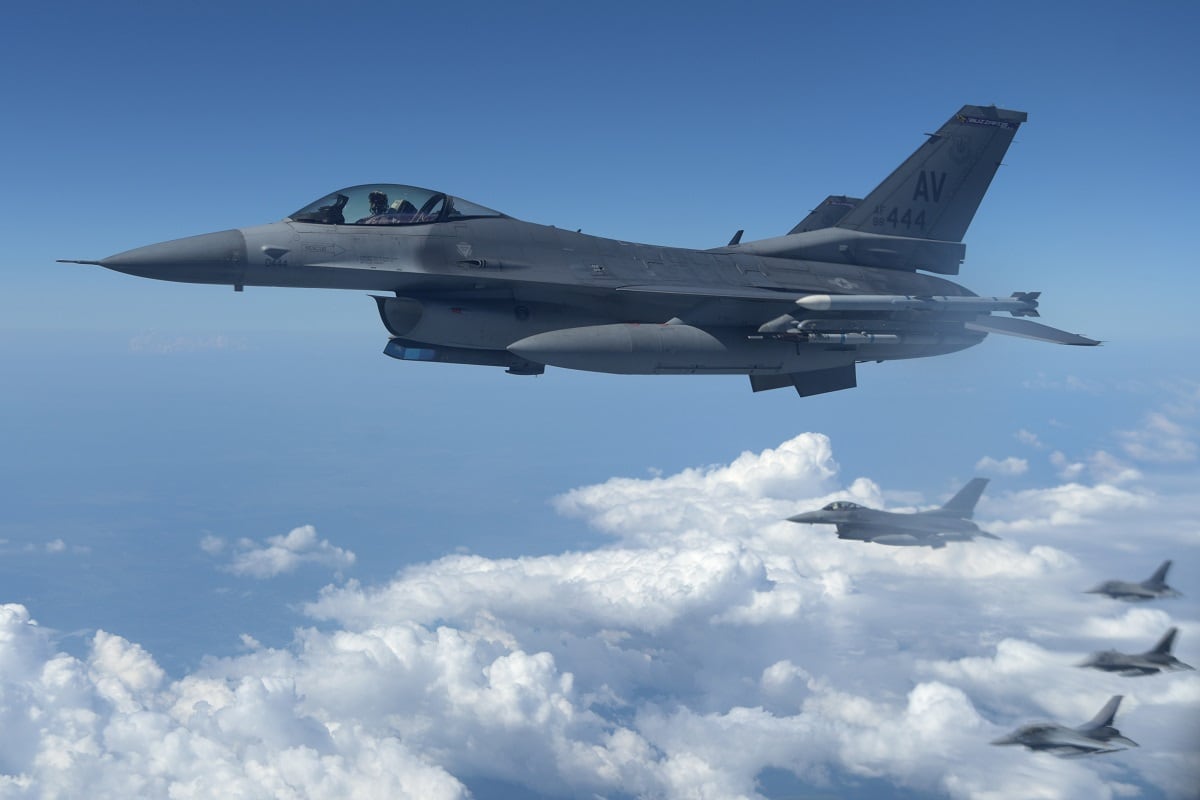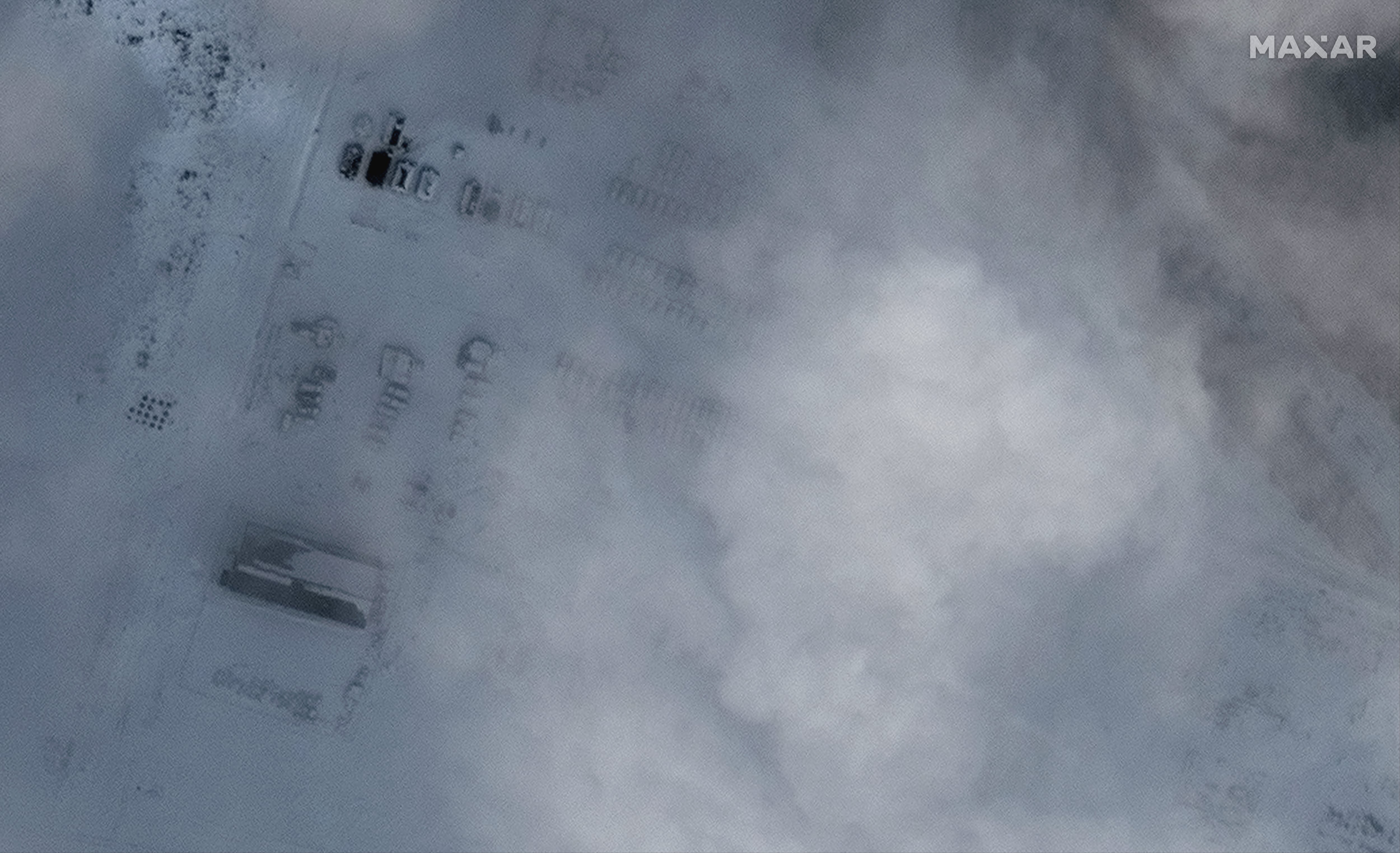WASHINGTON ― Ahead of U.S.-Russia talks next week to deescalate tensions following Russia’s military build-up along Ukraine’s borders, Secretary of State Antony Blinken warned Friday that the West was ready to respond “forcefully” if Russia steps up its aggressive actions.
“We’re prepared to respond forcefully to further Russian aggression, but a diplomatic solution is still possible and preferable ― if Russia chooses it,” Blinken said at a State Department press conference. “That’s what we, together with our allies and partners, will continue to pursue intently next week.”
When pressed on what the Western military response would be if Russian invaded Ukraine, Blinken emphasized the “massive consequences” for Moscow would include including stiff sanctions, adding that “NATO’s defensive posture will have to strengthen even further, assistance to Ukraine to defend itself will continue.”
The Biden administration has already committed more than $450 million in security assistance to Ukraine this year, but former U.S. officials say the Biden administration must do more militarily to deter Russia.
Former ambassador to Ukraine John Herbst criticized the Biden administration on Thursday for threatening to strengthen Ukraine’s military and NATO force posture only after an invasion, calling it a “serious mistake.” Man-portable Stinger missiles and anti-ship Harpoons should already be in Ukrainian hands, he said.
“The sequence is wrong. The weapons should be sent now, and the force posture should be enhanced now, telling Moscow we can always pull them back once you stop your buildup along Ukraine’s borders,” Herbst said at an Atlantic Council event. “The administration seems to be wary of sending weapons to Ukraine now that would in fact increase the pain of a Russian conventional invasion.”
Russia, as its massed of some 100,000 troops on its border with Ukraine, has demanded that Ukraine and other former Soviet countries be excluded from any future expansion of NATO and demanded that the alliance remove offensive weaponry from countries in the Russian neighborhood. But the Biden administration and NATO allies have made clear that the Russian demands are non-starters.
Russian foreign minister Sergey Lavrov made a threat of his own last week, telling a Russian news agency: “If a constructive response does not follow within a reasonable time and the West continues its aggressive line, then Russia will be forced to take all necessary measures to ensure a strategic balance and eliminate unacceptable threats to our security.”
With the two sides far apart, Blinken wouldn’t rule out the possibility that Russia could use its non-starter conditions to stymie the talks.
“It’s certainly part of [Russia’s] playbook, to put out a list of absolutely non-started demands and to claim the other side is not engaging, and then use them as justification for aggressive actions,” he said.
“It will be very difficult to make actual progress if Russia continues to escalate its military buildup, and it’s inflammatory rhetoric,” Blinken said. “And we’ve been clear with Russia about what it will face if it continues on this path, including economic measures that we haven’t used before.”
Next week, Deputy Secretary of State Wendy Sherman, the State Department’s No. 2 official, will meet with Russian Deputy Foreign Minister Sergei Ryabkov in Geneva. Deputy Assistant Secretary of Defense for Russia, Ukraine, Eurasia Laura Cooper and Lt. Gen. James Mingus, the Joint Staff’s operations director, will represent the Defense Department in the talks.
RELATED

Sherman will go to Brussels to meet with NATO and European Union officials in Brussels first, followed by a NATO-Russia meeting Wednesday and then a meeting of the Organization for Security and Co-operation in Europe. Ahead of those talks, U.S. President Joe Biden is scheduled to speak with Ukrainian President Volodymyr Zelensky.
Retired Gen. Wesley Clark, former NATO supreme allied commander Europe, said he sees Putin as using the military escalation to force Russia back into a central role in world affairs and with the hope of intimidating and shattering the West.
“Ukraine is like a punching bag. You have an an audience of your future opponents, but you don’t fight them, you fight the punching bag. You punch and punch it and show them how powerful you are,” Clark said at an Atlantic Council event Thursday. “He may not succeed, he may decide, ‘I won’t look that good against tough resistance.’”
One complicating factor is that a Russia-led military alliance is dispatching peacekeeping forces to Kazakhstan, at the request of its president, to quell violent protests in its capital. That will force Putin to decide whether he wants to juggle both crises, Herbst said this week.
“If this number of troops [in Kazakhstan] doesn’t do it and they need to send in tens of thousands more, I’m not sure Putin can sustain the current number of troops on Russia’s borders, and Ukraine may get a reprieve, and the current crisis Moscow has manufactured may dissipate, at least for a few months,” Herbst said.
RELATED

Clark favors immediately sending NATO battalions to Romania and Poland, both front-line states. He also recommended NATO send to Romania an air expeditionary force with the mission of Black Sea training and surveillance, as well as cooperation with Ukrainian forces.
“Air power is what’s needed,” Clark said. “Putting 50 or 150 troops, or 20 tanks in Romania or Slovakia does nothing. Put that Air Force there; the Russians respect it, they know how good we are and how flexible and agile it is. It raises doubts among Putin’s advisors about whether the United States actually might intervene if they did something in Ukraine.”
With reporting by the Associated Press.
Joe Gould was the senior Pentagon reporter for Defense News, covering the intersection of national security policy, politics and the defense industry. He had previously served as Congress reporter.





